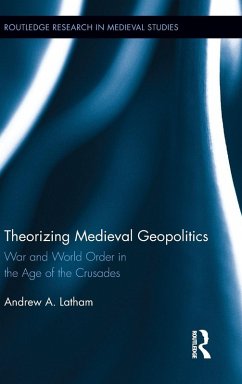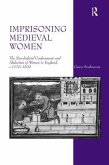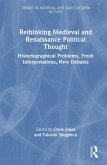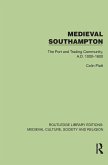This book provides a theoretically guided and historically sensitive account of the geopolitical relations of medieval Latin Christendom. It does this by developing a theoretically informed picture of medieval geopolitics, theorizing the medieval-to-modern transition in a new and fruitful way, and suggesting ways in which a systematic analysis of medieval geopolitical relations can actually help to illuminate a range of contemporary geopolitical phenomena. Finally, it develops an historically sensitive conceptual framework for understanding geopolitical conflict and war more generally.
Viewing the late Middle Ages (1250-1550) through the lens of what he calls the "historical structure of war", Andrew Latham provides a fresh conceptualization of the geopolitics of late medieval Latin Christendom, emphasizing neither "feudalism" nor "heteronomy", but rather the emergence of the "corporate-sovereign state", the "corporate-sovereign Church" and "Hobbesian-Lockean anarchy". He goes on to demonstrate how this distinctive historical structure of war gave rise to a constellation of public and religious wars that was unique to late medieval Latin Christendom.
Viewing the late Middle Ages (1250-1550) through the lens of what he calls the "historical structure of war", Andrew Latham provides a fresh conceptualization of the geopolitics of late medieval Latin Christendom, emphasizing neither "feudalism" nor "heteronomy", but rather the emergence of the "corporate-sovereign state", the "corporate-sovereign Church" and "Hobbesian-Lockean anarchy". He goes on to demonstrate how this distinctive historical structure of war gave rise to a constellation of public and religious wars that was unique to late medieval Latin Christendom.








